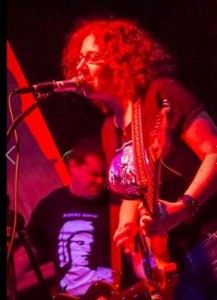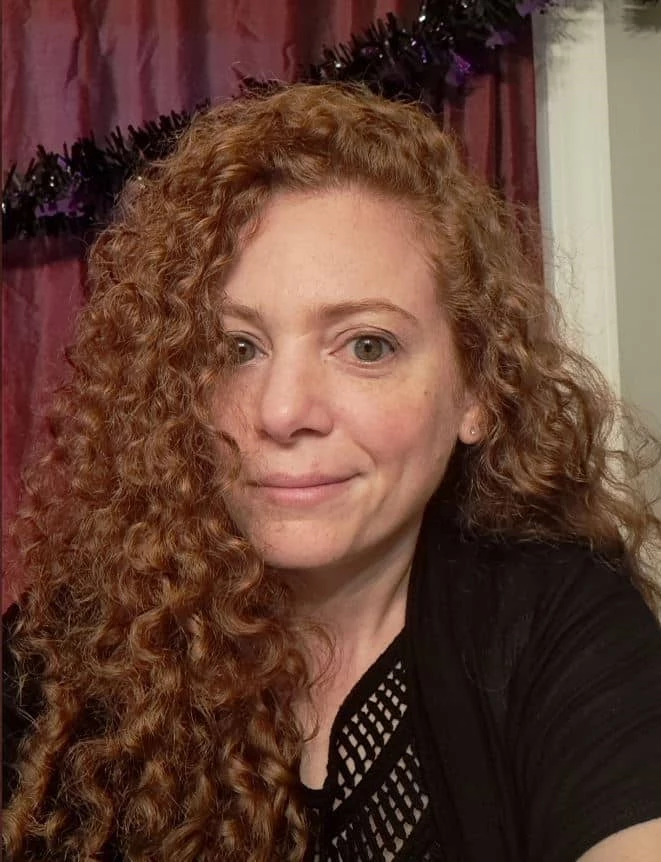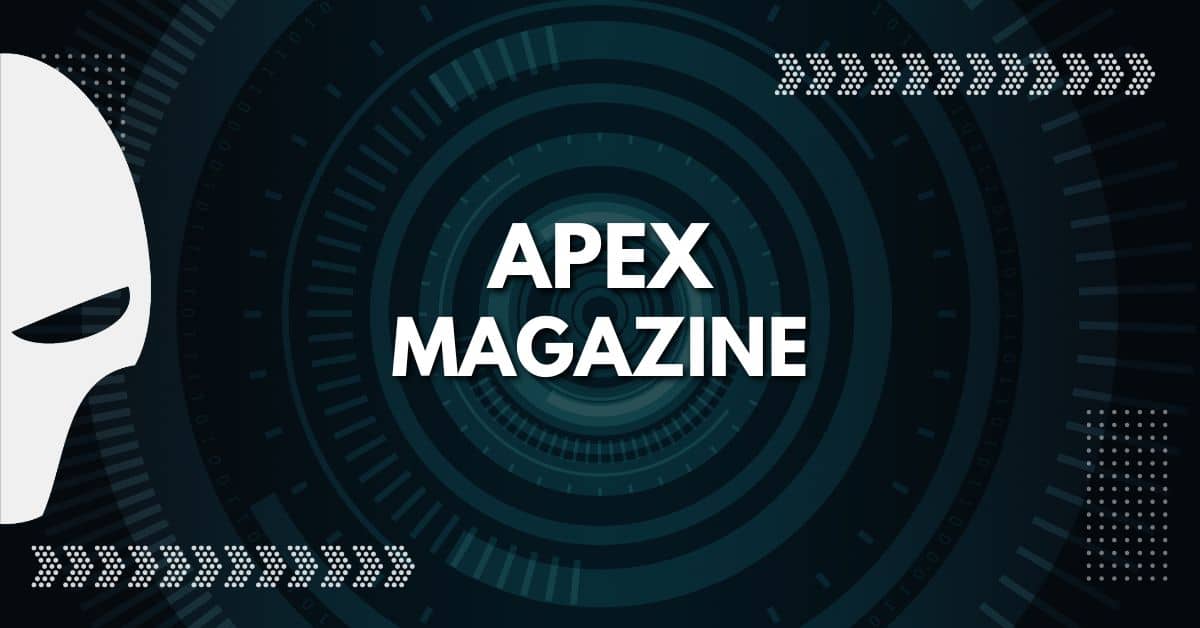
Thanks to a home computer in Texas and her cousin’s guitar, Sarah Pinsker has been playing music for nearly as long as she’s been writing. Musician by day and author by night (and sometimes the other way around), Pinsker is a 2014 Sturgeon Award winner and Nebula finalist, and her fiction can be found in Lightspeed, Strange Horizons, The Journal of Unlikely Cartography, Fantasy & Science Fiction, and now Apex Magazine. If anthologies are more your cup of tea, her work can be found in the Long Hidden, Fierce Family, How to Live on Other Planets, Unidentified Funny Objects 3, and Year’s Best Weird Fiction Vol 2.
This month, Apex Magazine is thrilled to bring you her gut-punching story “Remembery Day”, which spotlights a most unforgettable Veteran’s Day. Pinsker deploys a dangerously sharp gentleness to present issues of PTSD, patient care, and how “easier isn’t the same as better”. It’s been two weeks since I read this story for the first time, and I can’t get it out of my head.
It’s an interesting thought experiment to wonder if characters in stories made the right decisions, to discuss how much you, as a reader, agree with their decisions. If it was you in that situation, would you have done something different? “Remembery Day” is ripe for this kind of thought experiment, and I invite every person who reads this story to ask themselves if they agree with how Kima and the other vets voted, and then to have a friend read the story, and ask that friend if they agree. I’m incredibly curious to see the conversations that arise out of this experiment, and once you read the story, I think you’ll be just as curious.
Questions about the story
APEX MAGAZINE: “Remembery Day” packs quite the punch, touching on PTSD, how we honor our veterans, and what the veterans themselves want. There is a powerful dichotomy between how the populace wants to treat their honored vets, and how the vets would prefer to live their lives. What inspired you to write this story?
SARAH PINSKER: I can’t really put my finger on one thing that inspired it. It’s a combination of things, as I think most stories probably are. In my day job I work with people with epilepsy. There’s a big problem with veterans coming back from combat and developing seizures. They get concussions and brain injuries from blasts, but they fall to the back of the line in triage if they’re not bleeding. The seizures may not start until weeks or months or even years later. As you say, there can be a gap between how people want to live their lives and how it actually goes down in practice.
Anyway, I guess I was thinking about how to some degree we hide our veterans and their problems away. There are people who work very hard to help them get back into things, but on the whole, as a society, we have a tendency to ignore and hide that which we find difficult to face. I followed that to an extreme with the story. Because of course it would be easier for everyone if nobody had to talk about difficult things; but easier isn’t the same as better.
AM: How did you come up with the ideas for the specific characters and post-war situation?
SP: I think I started with the title, which gave me a little girl’s voice to work with, and a holiday to invent from scratch. I like telling big stories through the voices of children, because then your narrator is reasoning things out along with your readers. In this case, I worked backward and forward from the parade to figure out who was marching, and who wasn’t, and why. I wanted the ceremony and the war to feel like they could have been anywhere.
AM: Do you think Kima will ever tell Clara what she did in the war? Should parents tell their children about the awful (or supposedly awful) things they’ve done? What (if anything) does society lose when an older generation doesn’t pass their knowledge and ideas down to their children?
SP: I think Clara will get some answers. As she gets older, she’ll learn the right questions to ask, and the timing of when to ask them. I don’t know what specifics Kima will choose to tell. That’s a decision that I’m guessing every parent approaches differently, and I’m sure there’s no right or wrong way to do it, just people doing what they think is best. But there’s definitely something scary to me in the idea of a society that hides its veterans away. The world I’ve created here is still in the early years of its experiment, but I don’t know if it’s sustainable. They’re leaving the remembering to those who only know it second hand, which means there are gaps. There’s probably a whole other story to tell about one of the places or times when the veterans make the other choice.
AM: At the end of the story, Kima and the other vets have their annual vote. Do you think they made the right choice?
SP: I’ll leave that one up to the reader.
Questions about writing and your career
AM: Between published and forthcoming works, you’ll have over 20 short stories published during 2014 and 2015. Your secret to being so prolific?
SP: The short answer: I just keep writing. If a story gives me trouble, I move on to another and come back to the difficult one when I have the tools to deal with it. And I never sit down to a blank screen without knowing how I want to start off the writing session. I do the thinking/plotting/planning part during the rest of my day. The heavy lifting happens while I’m running, while I’m walking my dog, while I’m making dinner, while I’m driving.
Also, I’m a prolific short story writer but a glacially slow novelist, so I guess it depends on your perspective (I’ll happily take ‘prolific short story writer’ over the latter, though.)
AM: Who are some of your favorite authors? How have they influenced you?
SP: How much room do I have? There are a ton of people writing right now who I’m tremendously impressed with. They all make me strive to do better.
Ursula Le Guin and Kate Wilhelm were early influences, and I’d have to say I was rereading Le Guin when I wrote this story. Karen Joy Fowler. Kelly Link. Kij Johnson. Octavia Butler. I’ll go on binges of reading somebody, and then the next thing I write will sound a little too much like them, and then I’ll push their style back down into my writer soup until it dissolves.
AM: You’re also a singer-songwriter. Does you love of music bleed into your writing, or vice versa? How are writing fiction and writing songs similar?
SP: Music and fiction definitely bleed into each other. To me, they’re both vehicles for story, even if the story is as simple as a declaration of love. Songwriting tools are super useful for fiction. Word choice, the rhythm of sentences.
There’s a talk that I’ve given that I keep planning on turning into a series of blog posts, about how being a musician made me a better writer, but I think I have more discipline as a fiction writer than I’ve ever had as a songwriter. There’s some part of me that still thinks the appearance of a new song is something alchemical, whereas stories come from hard work.
AM: You’re a co-host of the Baltimore Science Fiction Society’s Dangerous Voices Variety Hour. What exactly is DVVH, and how did you get involved with it?
SP: Dangerous Voices Variety Hour is a value added reading series/game show. The Baltimore Science Fiction Society wanted to start a reading series. Michael Underwood and I brainstormed on ways to get more people turning up, since a reading series can be a hard sell, and a lot of them end up as writers reading to other writers. There are a number of very successful, well-attended lit fic series in Baltimore, so we tried to learn from them. Then we pulled a little from NPR’s Wait Wait Don’t Tell Me game show. The result is part reading, part interview, and then a bunch of games and giveaways. Some of the games are played by the audience, and some by the guests. Audience members go home with books. We’ve hosted Myke Cole, Fran Wilde, Rahul Kanakia, Chuck Gannon, Tom Doyle, Leanna Renee Hieber, Marisa Meyer. We’ve had an audience of fifty to a hundred for most of them. We do it roughly quarterly, with one at Balticon at the end of May, one at the Baltimore Book Festival in September, and another one or two in between as weather permits. It’s a lot of fun.
AM: Thanks Sarah!












